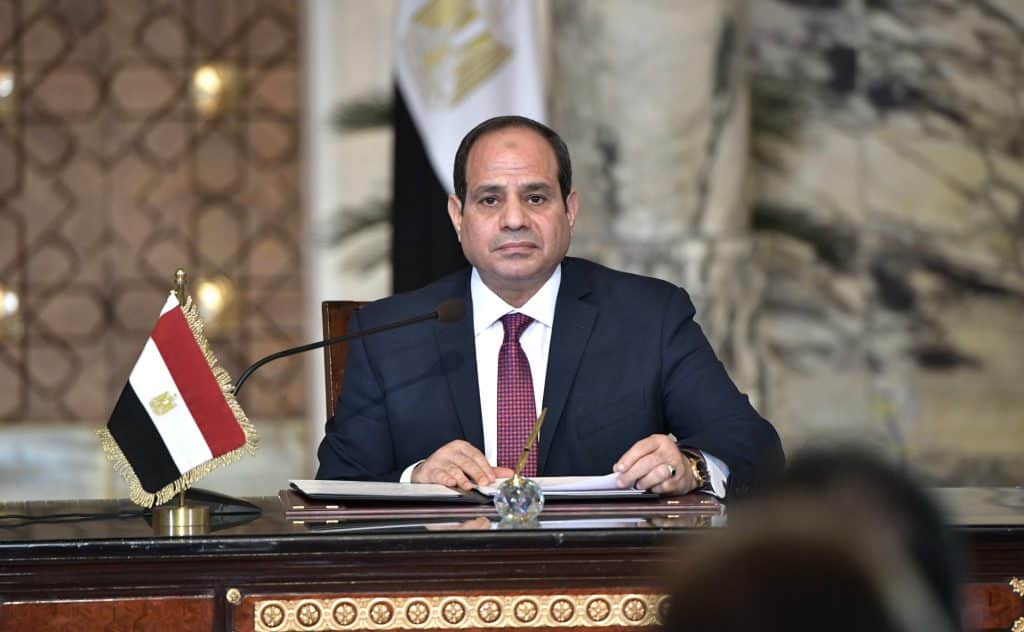"Combating terrorism is a human right, a new right that I am adding to human rights in Egypt." With these words, President Sisi of Egypt defends his repressive policies. In the run-up to the presidential elections, the situation is deteriorating by the day. Political activists are threatened, tried and imprisoned. Many of them face years in prison or even the death penalty. Sisi is pursuing this offensive policy to, he says, arm the country against terrorism. The price paid for this is high, too high. Freedom of expression, association and information are curtailed time and again, and any opposition is crushed.
The Egyptian exceptionalism in which Sisi believes makes every opposition member a terrorist, places security above human rights and considers the rule of law only an obstacle in achieving its goals. It makes the space for political parties to organise marginal. Every critical press release is met with reprisals and meetings can only take place under surveillance. The state-controlled media serve as a mouthpiece for the regime and reinforce the fear image it forms. As a result, the average Egyptian distrusts the opposition and sees the president as a protector.
Not only political groups are targeted. In addition, student associations are also disbanded and it is almost impossible for foreign NGOs to operate in the country. For instance, they are forbidden to transfer money to Egyptian organisations. They are also not allowed to organise conferences or training sessions that touch on political issues. Therefore, for the regime's convenience, everything is politicised, for example a topic like climate change. The result is a complete reclamation of any activity.
Supporters of Sisi reject the criticism and argue that a tough approach is needed for the security of all, pointing to the presence of Islamic State (IS) in the Sinai desert and the series of attacks on Coptic targets, the Christian minority in the country.
Prominent candidates withdraw
In the upcoming presidential elections - the first round is scheduled for 26-28 March - a clear winner will emerge immediately. Sisi has already secured the support of three-quarters of MPs. According to the secretary-general of the Egyptian parliament, 464 out of 596 members have declared themselves in favour of the current president.
Few prominent opposing candidates came forward in recent weeks and all have already withdrawn. Long-time human rights lawyer Khaled Ali refused to give up, but on 24 January he did so anyway, arguing that the elections will not be free and that he is opposed by the electoral commission. Earlier, Sami Anan, a former senior Egyptian army general, former prime minister Ahmed Shafik, who returned from exile, and the nephew of assassinated former president Anwar Al-Sadat, Mohamed Sadat withdrew from the race. Anan was arrested, Shafik suddenly declared he was not the right person to lead the country after all, and Sadat could find no hotel willing to host his press conferences and no publisher willing to print his flyers. The examples illustrate the systematic elimination of candidates who in any way threaten Sisi's position.
Exactly seven years ago, on 25 January 2011, young people started peaceful protests that culminated in the ousting of president and long-time dictator Hosni Mubarak. Millions took to the streets in Cairo, Alexandria and other major cities to oppose corruption, police brutality and poor socio-economic conditions. Today, they are back to square one. The Sisi regime is firmly in the saddle and a new Arab Spring is not in sight.
Jaron Liplijn, Foundation Max van der Stoel





